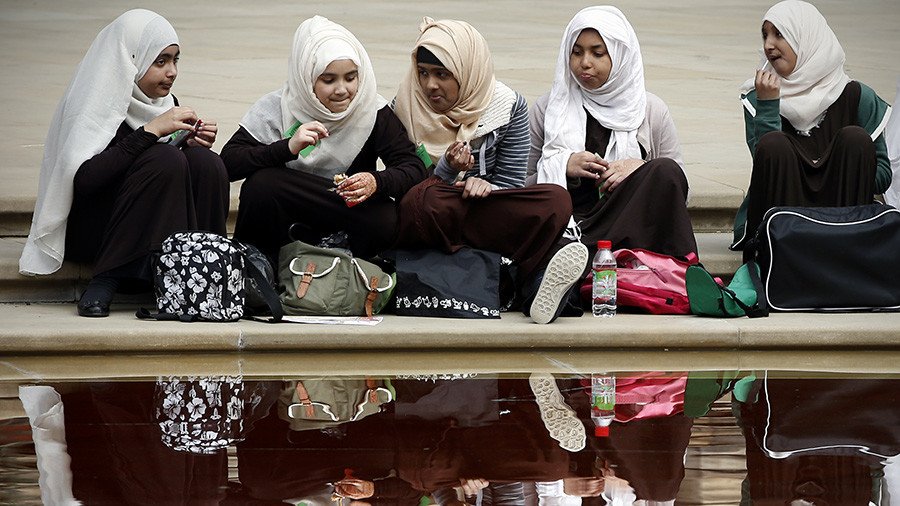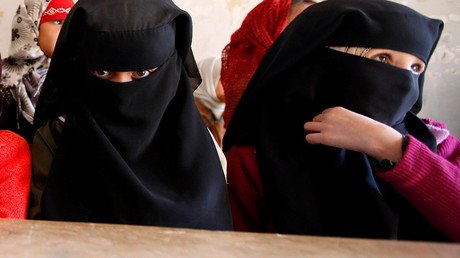Quizzing primary school girls on hijabs is ‘institutional Islamophobia’ (VIDEO)

A move to ask Muslim girls in British primary schools why they wear hijabs has been branded institutional Islamophobia. “When are we going to be accepted as British... with the freedom to practice our faith?” human rights barrister Aisha Alvi told RT.
Ofsted’s chief inspector Amanda Spielman announced the intervention after meeting Muslim and secular campaigners who want a ban on hijabs in primary schools. Spielman said “creating an environment where primary-school children are expected to wear the hijab could be interpreted as sexualisation of young girls.” Inspectors, she said, would “talk to girls who wear such garments to ascertain why they do so in the school.”
She urged anyone who “has a concern about fundamentalist groups influencing school policy, or breaching equality law” to complain to the school. If the school did not act, Ofsted could become involved, she said.
Some schools could be in breach of equality laws if girls were required to wear religious dress with boys free to wear anything they want, Spielman said. “In seeking to address these concerns, inspectors will talk to girls who wear such garments to ascertain why they do so in the school,” the chief inspector said, urging parents and the public to complain to head teachers if they think schools fail to treat girls and boys equally.
Barrister and human rights campaigner Alvi told RT that children’s clothes are not the government’s business. “This should be something which should be a free choice between the parents and the children. And it should be something personal. It is not for the state to intervene in such an issue.
“It’s not necessarily them being made to wear it – it sometimes is many girls’ choice. I have young girls in my family who chose to wear the headscarf at age eight or nine. I personally see that this is another reason for institutional Islamophobia.”
She added: “When are we just going to be accepted as being British, as being part of this society with the freedom to practice our faith?”
According to a study conducted and released by the Times in September, at least 18 percent of 800 primary schools surveyed in 11 regions across the UK allow the hijab as part of the school uniform.
A study by the National Secular Society (NSS) found in late September that more than two in five Islamic schools in the UK which accept girls require them to wear a hijab as a school uniform. It means that as many as 42 percent of Islamic schools, including 27 primary schools, have a uniform policy stating that the hijab is compulsory.
In some cases, the requirement is very explicit, the NSS noted, adding that at Feversham College in Bradford, the policy states: “It is very important that the uniform is loose fitting and modest and that the hijaab is fitted closely to the head. The College uniform is COMPULSORY” (sic). Girls at Al-Ihsaan Community College in Leicester are told they must wear either a “jilbaab or niqab.”
To raise the alarm, the NSS wrote a letter to the Secretary of State for Education, Justine Greening, calling for the government to ensure girls from Muslim backgrounds are encouraged to have a choice, rather than forced to cope with ‘modesty’ codes imposed on them. “All schools have a duty to ‘actively promote’ individual liberty, to ensure young people leave school prepared for life in modern Britain,” the letter said. “The forcing of a child to wear the hijab, or any other item of religious clothing, is entirely at odds with this fundamental British value and with wider human rights norms on children’s rights,” it added.













